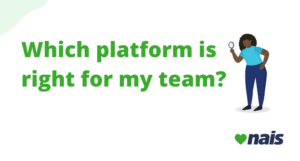As a manager, have you ever wondered what makes an employee more productive? In today’s article, we will investigate how employee appreciation has a direct impact on output productivity.
Why does employee appreciation boost productivity?
Managers who show appreciation and recognition to their employees make their workforce feel valued. Therefore, this leaves employees feeling engaged with purpose, and as such more productive. A study by Gallup (2016) demonstrates that appreciation and recognition can lead to higher loyalty and retention in a company.
Unsurprisingly, a study by the University of Berkeley (2013) found that 93% of employees agree that grateful bosses are more likely to be successful. To this point, employees are the biggest value of a company. As such, you must treat them with respect and value the time and effort they put into the achievement of goals.
Now, you might think “What does appreciation have to do with productivity?”. Well…
Here’s some numbers for you.
A study by Glassdoor revealed that 81 % of employees report higher motivation when their boss shows appreciation for their work. Unsurprisingly, only around 38% reported that they are motivated when their boss is demanding.

It is important to note that high motivation leads to high productivity.
The reason behind it is simple. The more self-purpose you feel ( which comes from being appreciated) the more ambition you have. Then, the more drive you have to succeed and produce work you are proud of.
Not only does appreciation help individuals feel valued… It also makes employees feel important to the overall impact in the company. As such, there is a higher stake and pride in the work they produce.
Moreover, who wouldn’t prefer to work for a boss that is grateful for efforts and intentions? Especially over a boss that overlooks all small achievements.
If you are looking to learn more about appreciation in the workplace, then I invite you to download our free appreciation ebook. Moreover, learn from HR professionals to understand what kind of leader you are. As well as how to incorporate and appreciation culture in your workplace.













